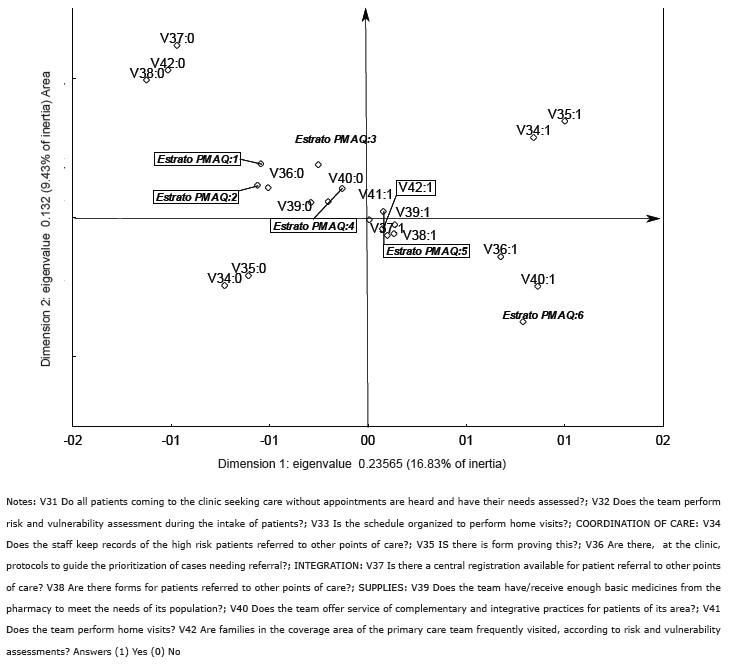Objective:
to analyze the influence of contextual indicators on the performance of cities regarding potential access to primary health care in Brazil and to discuss the contribution from nurses working on this access.
Method:
a multicenter descriptive study using secondary data from External Evaluation of the National Program for Access and Quality Improvement in Primary Care, with the participation of 17,202 primary care teams. The chi-square test of proportions was used to verify differences between the cities stratified in the dimensions on size of the coverage group, supply, coordination and integration. When necessary, the chi-square test with Yates correction or Fisher’s exact test were employed. For the population variable, the Kruskal-Wallis test was used.
Results:
the majority of participants were nurses (n = 15,876; 92.3%). Statistically significant differences were observed between the cities in terms of territory (p=0.0000), availability (p=0.0000), coordination of care (p=0.0000), integration (p=0.0000) and supply (p=0.0000), verifying that the cities that make up group 6 tend to perform better in these dimensions, with a better performance in all dimensions analyzed in groups 4, 5 and 6.
Conclusion:
weakness in smaller cities, confirming inequities in the potential access to Primary Health Care in Brazil as challenges for universal coverage. The preponderant role of nurses for its achievement is highlighted.
Health Services Accessibility; Primary Health Care; Universal Coverage




